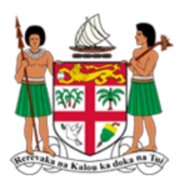Best Military Law Lawyers in Suva
Share your needs with us, get contacted by law firms.
Free. Takes 2 min.
List of the best lawyers in Suva, Fiji
About Military Law in Suva, Fiji
Military Law in Suva, Fiji, encompasses the legal codes and statutes that govern the armed forces' members, including the military's conduct and administrative procedures. Fiji's legal framework for military matters is built upon both local legislation and customary traditions, integrated with influences from Commonwealth legal practices. The Republic of Fiji Military Forces (RFMF) is the primary body subject to these laws, ensuring discipline, justice, and order within the military ranks. Understanding Military Law is crucial for service members and their families to navigate legal structures effectively.
Why You May Need a Lawyer
Engaging a lawyer well-versed in Military Law may be necessary in several scenarios, including:
- Facing disciplinary actions or court-martial proceedings relates to alleged breaches of military conduct.
- Addressing employment and service-related disputes for current or former military personnel.
- Navigating compensation claims for injuries or disabilities incurred during military service.
- Resolving matters of military contracts, procurement disputes, or reviews of administrative decisions.
- Understanding the implications of transitioning from military to civilian life, including retirement benefits.
Local Laws Overview
In Suva, Fiji, Military Law integrates statutory provisions with the customary principles specific to the military context. Key aspects include:
- The Defense Act, which outlines the powers, functions, and organizational structure of the RFMF.
- Military Discipline Code, governing conduct, disciplinary procedures, and the punishment framework for military offenses.
- Protocols on service-related injury compensation and post-service benefits, including pensions and healthcare.
- Provisions regarding military detentions and arrests, specifying procedures and rights of the personnel involved.
Frequently Asked Questions
What is Military Law?
Military Law refers to the body of laws and regulations specific to governing armed forces personnel. It includes statutes related to military conduct, discipline, and legal matters distinct to military service.
Who is subject to Military Law in Fiji?
Members of the Republic of Fiji Military Forces, including active duty personnel, reservists, and sometimes veterans depending on the nature of their engagement with the military.
What is a court-martial?
A court-martial is a military court responsible for trying members of the armed forces accused of breaking military laws, similar to a civilian trial but specific to military personnel.
Can civilians be tried by military law?
Generally, civilians are not subject to Military Law in Fiji, except under specific circumstances where national security or direct involvement with military operations might be concerned.
How can someone appeal a military decision?
An appeal can often be made to higher military authority or through established legal channels within the military justice system, depending on the type of decision and initial jurisdiction.
What rights do military personnel have under military law?
Military personnel are entitled to legal rights similar to civilians, including a fair trial, legal representation, and appeals. However, these might be exercised within the confines of military-specific legal protocols.
How can a lawyer assist with a military law issue?
A lawyer specializing in Military Law can offer legal advice, represent individuals in hearings or court-martials, assist with appeals, and ensure that one's legal rights are protected within the military justice framework.
What happens if one disobeys a direct order in the military?
Disobeying a direct order can lead to disciplinary action, potentially a court-martial, depending on the severity and circumstances of the incident.
How does one report a legal issue in the military?
Typically, issues are reported through the military chain of command or via designated legal officers, with options for escalation depending on the seriousness of the complaint.
Where can one find military law regulations?
Military law regulations can be accessed through official military publications, legal offices within the armed forces, and sometimes via government websites detailing defense and legal information.
Additional Resources
For those seeking more information or assistance with Military Law in Suva, Fiji, consider exploring these resources:
- The Republic of Fiji Military Forces Headquarters, for official guidance and legal reporting.
- Legal aid organizations in Suva offering pro bono assistance to military personnel.
- The Fiji Ministry of Defense and National Security, which can provide policy information and legal assistance.
- Veterans’ associations, which can offer support and resources specific to former service members.
Next Steps
If you require legal assistance related to Military Law in Suva, Fiji, consider the following steps:
- Gather all relevant documents and details about your situation, including any communications, orders, and personal records.
- Contact a lawyer specializing in Military Law to discuss your case and explore your legal options.
- Utilize available resources, such as military legal offices or veterans' organizations, for additional support and information.
- Ensure continual communication with your legal representative and follow their guidance throughout the legal process.
Lawzana helps you find the best lawyers and law firms in Suva through a curated and pre-screened list of qualified legal professionals. Our platform offers rankings and detailed profiles of attorneys and law firms, allowing you to compare based on practice areas, including Military Law, experience, and client feedback.
Each profile includes a description of the firm's areas of practice, client reviews, team members and partners, year of establishment, spoken languages, office locations, contact information, social media presence, and any published articles or resources. Most firms on our platform speak English and are experienced in both local and international legal matters.
Get a quote from top-rated law firms in Suva, Fiji — quickly, securely, and without unnecessary hassle.
Disclaimer:
The information provided on this page is for general informational purposes only and does not constitute legal advice. While we strive to ensure the accuracy and relevance of the content, legal information may change over time, and interpretations of the law can vary. You should always consult with a qualified legal professional for advice specific to your situation.
We disclaim all liability for actions taken or not taken based on the content of this page. If you believe any information is incorrect or outdated, please contact us, and we will review and update it where appropriate.











